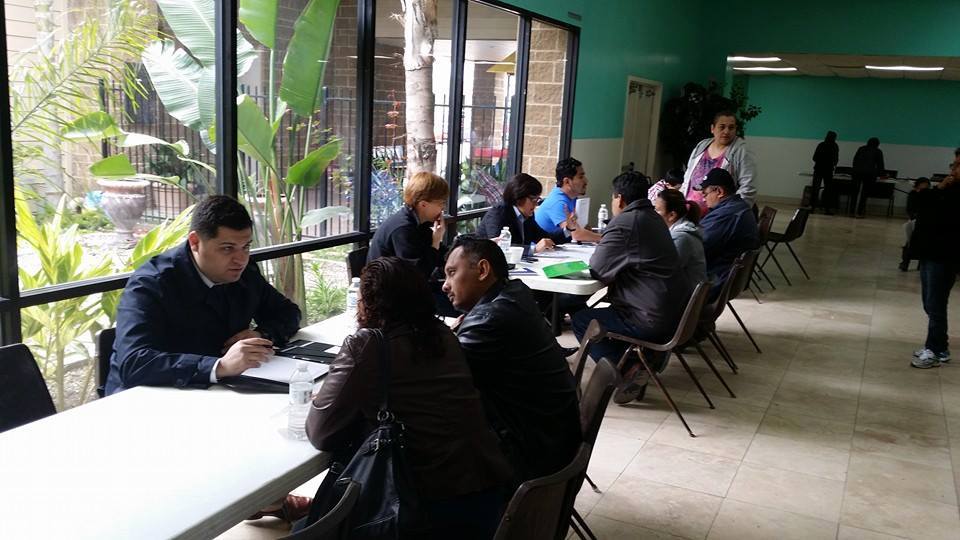
The Immigration and Nationality Act allows for other humanitarian forms of protection. Humanitarian protections vary on the amount of time that you can remain in the country. Some types of humanitarian relief may lead to the possibility of obtaining a green card.
Temporary Protected Status (TPS)
Temporary Protected Status (TPS) enable people that have been affected by a natural or political condition that makes it difficult to return to their home country from being removed from the U.S. There are certain requirements that must be met in order to qualify. TPS is not a long-term solution for most applicants, though it can be if Congress acts to give them a pathway to lawful permanent residence.
Most people with TPS often have to find another way to acquire permanent status, often times it is through a family petition. One benefit of TPS is the ability to obtain an Employment Authorization Document, allowing them to lawfully obtain employment.
Another benefit of TPS is the ability to acquire an Advance Parole, granting the permission to re-enter the country. TPS alone does not allow you to travel outside the U.S., it only prevents you from being removed. Each time you leave the U.S., you have to ensure you have a valid re-entry document.
Nicaraguan Adjustment and Central American Relief Act (NACARA)
The Nicaraguan Adjustment and Central American Relief Act (NACARA) provides benefits and relief from removal for certain Nicaraguans, Salvadorans, Guatemalans, Cubans, and nationals from the former Soviet countries.
Each country has its own requirements to qualify for NACARA relief. It is still available and often helpful for qualifying individuals in obtaining lawful permanent residence.
Violence Against Women Act (VAWA)
The Violence Against Women Act provide relief for individuals who have been battered by their lawful permanent resident or U.S. citizen spouse, parent, or child. VAWA protection is available to men and women.
U Visa
People that have been victims of certain crimes and have cooperated with authorities may be eligible to receive benefits under the U-Visa. The U-Visa is a dual intent non-immigrant visa, meaning that it is a nonimmigrant visa for four years but after three years a U-Visa recipient can apply to adjust their status.
T Visa
Individuals that have been trafficked into the U.S. for sexual or labor exploitation may be eligible for protection under the T-Visa. Similarly to the U-Visa, the T-Visa is a dual intent non-immigrant visa. Recipients of the T-Visa will be able to become lawful permanent residents.
Humanitarian Parole
Humanitarian Paroles are for individuals who are outside of the United States but wish to enter the country for a humanitarian reason or public benefit reasons. The entry is for a limited time, but it can be renewed. Most of the entries with Humanitarian Paroles involve medical treatment or pending legal proceedings. Entering the country on a Humanitarian Parole does not allow a work permit.
Parole in Place
A Parole in Place allows someone who has entered the country illegally to be granted a paroled into the country without having to leave the U.S. The most common type of Parole in Place is the Military Parole in Place. If you have a member of your family who is an active member or a veteran of the U.S. military, you can apply for a Parole in Place to be able to apply for your green card in the U.S. without leaving the country.
Humanitarian Reinstatement
A Humanitarian Re-instatement is a discretionary form of relief for a beneficiary of an approved family petition whose petitioner has died. The petition had to be approved in order for someone to request a reinstatement. A substitute sponsor who has a familial relationship has to file an Affidavit of Support. It is discretionary benefit, so the adjudicator has to weigh all the favorable factors against all the unfavorable factors.
Deferred Action for Childhood Arrivals (DACA)
Deferred Action for Childhood Arrivals (DACA) is similar to Temporary Protected Status. It is a temporary form of relief for those who qualify. In order to qualify for DACA, you had to enter the country before your sixteenth birthday, be under 31 years old on June 15, 2012, be enrolled in school or have graduated high school or obtained a GED, you have to been physically present on June 15, 2012, and have been continuously present in the U.S. since June 15, 2007. Felonies or serious misdemeanors may disqualify you. DACA grants employment authorization for two years.
Special Immigrant Juvenile Status (SIJS)
Special Immigration Juvenile Status (SIJS) is offered to juveniles that are in the United States because they have been abused, abandoned, or neglected by a parent. The SIJS is a two-step process. First, there has to be a court order from a Juvenile Court or Family Court has to make a finding that it is not in the best interest of the child to be reunified with his or her parent(s). If the finding is made, the child will be eligible for a green card.
